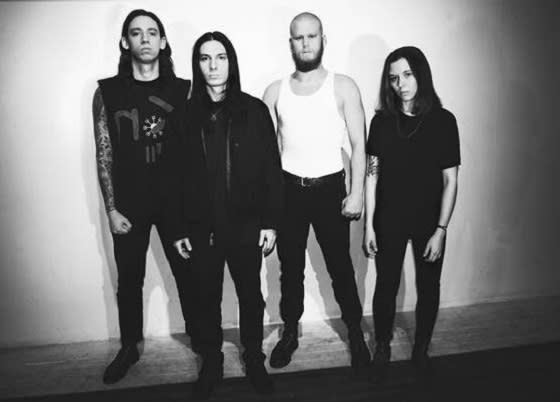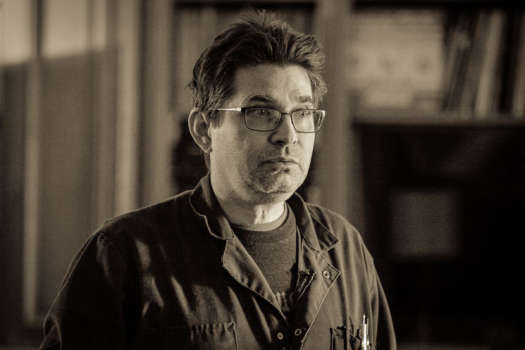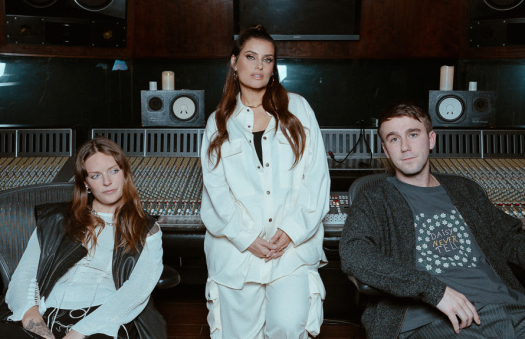Pittsburgh, PA unit Code Orange demanded the attention of the hardcore scene with the release of their 2014 breakout LP I Am King, and now the four-piece have put forth their most radical offering yet. Forever (out now on Roadrunner) flips metalcore structure on its head, as the band introduce a number of sounds foreign to the genre, but the payoff is undeniable. Drummer and vocalist Jami Morgan explained their motivations and approach to Exclaim!
1. They aren't seeking to please anyone.
Code Orange could not be less concerned about the scene's perception of them or their work.
"Honestly, it doesn't really matter to us. We had a run, especially at the beginning of our last record, where we really had the full support of the community, and we still do in a lot of ways, but there were times before that where we didn't have that at all. There are going to be times where we don't have that, and we truly don't give a shit. I just want to make records that, when I put [them] on, I can think to myself 'there isn't anything else like this right now.' We did the best possible job we could, and we want to not only carve out our own corner in the scene, but everywhere."
2. They put their own spin on already off-kilter influences.
Using a variety of sounds is one thing; making them work cohesively within an established sound is an art.
"We applied different styles of songwriting, but sound-wise we wanted those more melodic tracks to be like an evil Nirvana, or Alice in Chains. With Reba [Meyers]' singing, it's almost like a Siouxsie and the Banshees vibe. Mix that with our sound, and throw our little noise nuggets in there, and you get a concoction that's a little bit different."
3. They are resolute in their decisions, as reflected in Forever's theme.
Code Orange's absolute confidence in their work and identity gives them an edge and distinguishes them.
"[I Am King] was about trying to come into your own and be better, and this record is about the pitfalls that come with trying to have that confidence. People deal with that internally, but that kind of backlash can come from the outside world too, and from people who you thought were close to you. We've dealt with a lot of that, personally and other kinds of ways. This is a lot darker record because of that. It kind of deals with feelings of betrayal. The past couple years have made us a lot more thick-skinned and a lot more insulated, which is how we've always been. We very much rely on each other."
4. They refuse to let a bigger label — or other outside expectations — get in the way.
"With Roadrunner it was finding a perfect marriage of things — we don't want to change what we're doing, but we want to have a bigger reach. We want to be allowed to do everything we're doing, visually, musically, artistically and even tour-wise. I told the guy who runs Roadrunner that he had to trust my vision 100 percent, and if he did, we could do some awesome things. The thing is, we're not in awe of all of this, we're okay to do our own thing, and they know that's true. They came to the table with what was needed to make us feel comfortable creatively, and it probably makes it easier for them if anything, but we're true sticklers about what we want. Presenting what we want to present is so important to me. We're going to get out to more kids our own way, and in my heart I do believe that it's possible. When we play and I see it, I believe that it is within reach, we just needed a platform and that's just what they're giving us. I'm happy as long as I can go to sleep at night knowing that we made our own choices and the records that we wanted to make."
1. They aren't seeking to please anyone.
Code Orange could not be less concerned about the scene's perception of them or their work.
"Honestly, it doesn't really matter to us. We had a run, especially at the beginning of our last record, where we really had the full support of the community, and we still do in a lot of ways, but there were times before that where we didn't have that at all. There are going to be times where we don't have that, and we truly don't give a shit. I just want to make records that, when I put [them] on, I can think to myself 'there isn't anything else like this right now.' We did the best possible job we could, and we want to not only carve out our own corner in the scene, but everywhere."
2. They put their own spin on already off-kilter influences.
Using a variety of sounds is one thing; making them work cohesively within an established sound is an art.
"We applied different styles of songwriting, but sound-wise we wanted those more melodic tracks to be like an evil Nirvana, or Alice in Chains. With Reba [Meyers]' singing, it's almost like a Siouxsie and the Banshees vibe. Mix that with our sound, and throw our little noise nuggets in there, and you get a concoction that's a little bit different."
3. They are resolute in their decisions, as reflected in Forever's theme.
Code Orange's absolute confidence in their work and identity gives them an edge and distinguishes them.
"[I Am King] was about trying to come into your own and be better, and this record is about the pitfalls that come with trying to have that confidence. People deal with that internally, but that kind of backlash can come from the outside world too, and from people who you thought were close to you. We've dealt with a lot of that, personally and other kinds of ways. This is a lot darker record because of that. It kind of deals with feelings of betrayal. The past couple years have made us a lot more thick-skinned and a lot more insulated, which is how we've always been. We very much rely on each other."
4. They refuse to let a bigger label — or other outside expectations — get in the way.
"With Roadrunner it was finding a perfect marriage of things — we don't want to change what we're doing, but we want to have a bigger reach. We want to be allowed to do everything we're doing, visually, musically, artistically and even tour-wise. I told the guy who runs Roadrunner that he had to trust my vision 100 percent, and if he did, we could do some awesome things. The thing is, we're not in awe of all of this, we're okay to do our own thing, and they know that's true. They came to the table with what was needed to make us feel comfortable creatively, and it probably makes it easier for them if anything, but we're true sticklers about what we want. Presenting what we want to present is so important to me. We're going to get out to more kids our own way, and in my heart I do believe that it's possible. When we play and I see it, I believe that it is within reach, we just needed a platform and that's just what they're giving us. I'm happy as long as I can go to sleep at night knowing that we made our own choices and the records that we wanted to make."




